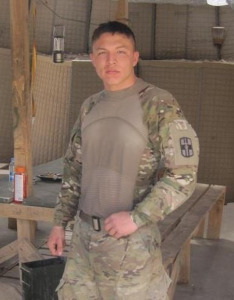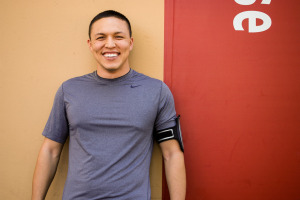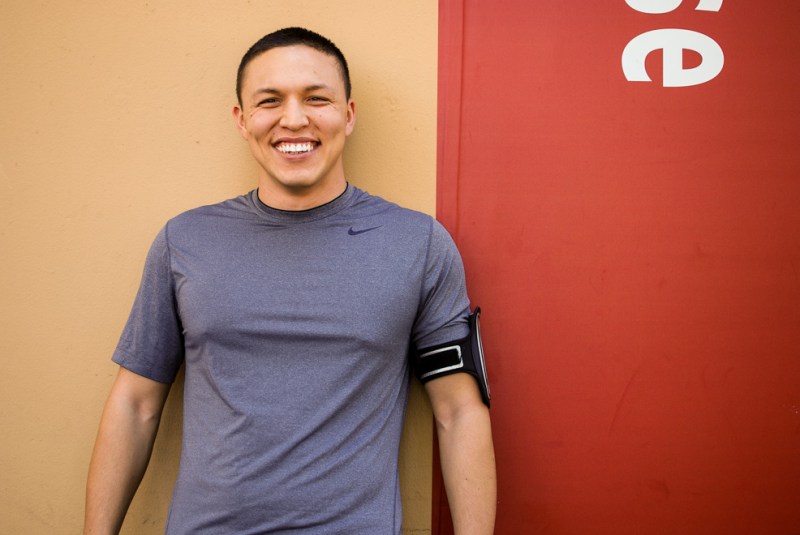Were you to have a class with Saamon Legoski ’16 or sit down with him for lunch, you might think he is your typical Stanford student: a psychology major, creative writing minor, studies hard and works out quite a bit. What you may not realize at first glance, however, is that Legoski is a veteran of the U.S. Army and is currently in his seventh of at least 12 years in the National Reserves.
Legoski is the first to admit his performance in kindergarten through high school was sub-par. He described it as a “record of mediocrity and failure to pass the standards.”
“In other words,” Legoski chuckled, “I failed quite a bit of classes.”

The turnaround came after the first semester in community college when Legoski realized that college wasn’t for him. He signed up with the National Reserves as a behavioral health specialist, serving as a battlefield counselor. Legoski’s job was to deal with “normal reactions to war” and prevent them from turning into something worse, like post-traumatic stress disorder.
But his training as a counselor has benefitted him at Stanford in more than just preparing him for his psychology major.
“Through the military I learned how to listen. The military teaches you discipline, how to work in a team. I think that helps in everyday life,” he said.
Deployment for Legoski came in the summer of 2011 with a 10-month stint in Afghanistan.
“It was the most fun I’ve ever had in my life,” Legoski said smiling, “Though experiences may vary.”
During his time spent on active duty, the amount of responsibility Legoski had was what he enjoyed the most, as it helped him find self-empowerment.
“I was meeting with commanders and senior leaders,” Legoski described, “This is the kind of responsibility I may not have for another 10 or 15 years.”
Legoski’s job included both formal counseling as well as informal interactions with the men and women on his base. He described long talks and camaraderie with his fellow service men and women.
“I was kind of the RA for the whole base,” Legoski said.
Legoski’s time in Afganistan made him decide that he could do anything he wanted with his life. This is how he came to apply and matriculate to Stanford, with the help of Service 2 School, an organization which helps veterans attend non-profit schools for free.

Legoski has been extremely impressed by the amount of effort that Stanford puts into attracting veterans. For example, 20 percent of every transfer class at Stanford is consistently made up of veterans.
“Stanford is not just veteran friendly,” Legoski said, comparing Stanford to other universities. “It is veteran ready.”
Legoski admits that his lack of a rigorous academic background has been something he’s had to work hard to overcome, thus he has been learning time management and how to balance his workload from his peers here. Furthermore, because he is on the National Reserves, Legoski can technically be deployed at any moment and may be asked to leave Stanford to go back into the war zone.
Legoski is already working on employing his academics for the real world. His psychology degree will be used to help soldiers deal with psychological trauma on the battlefield and his creative writing minor is currently being used to write an admissions guideline book for Service 2 School to help other veterans attend school after deployment.
But for now, Legoski is just as busy as any other Stanford student studying for midterms.
Contact Elizabeth Wallace at wallacee ‘at’ stanford.edu.
